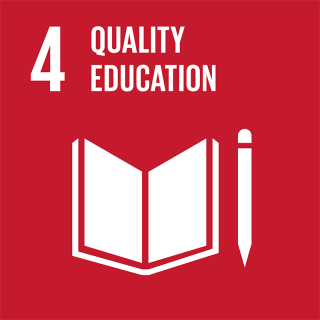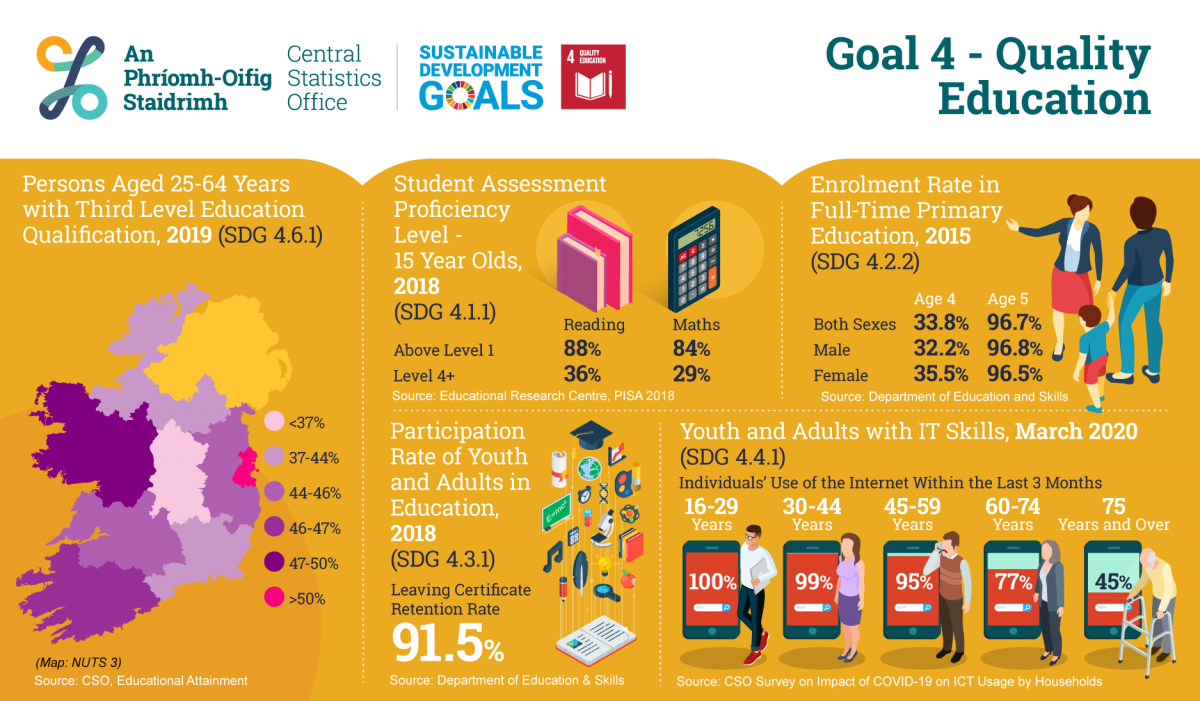Ireland and SDG 4 - Quality Education

Access to equitable and quality education through all stages of life is the aim of SDG4. It focuses on increasing the number of youth and adults with employment and entrepreneurship opportunities and advocates life-long learning. It also aims to decrease inequalities among gender or income in accessing education. Some of the main findings of the CSO report are:
- Assessment of 15-year-old students in 2018 showed 88% of students in reading and 84% in maths were proficient in Level 2 or higher
- Almost 34% of 4 year olds and 97% of 5-year-olds were enrolled in primary school in 2015
- Analysis of first year students enrolled in post primary in 2012 showed 91.5% sat their Leaving Certificate in 2018
- Almost all individuals aged 16-44 years used the internet in the first 3 months of 2020, compared with 45% of those aged 75 years and older
- In Dublin, 57% of adults aged 25-64 years had a third level educational qualification compared with 36% in the Midlands, in 2019
A detailed infographic outlines some key data on the three areas examined in the report (Childhood Education, Adult Education and Education Infrastructure)
Source: CSO
These findings are in line with Social Justice Ireland’s Sustainable Progress Index 2020 which measures Ireland’s performance on the SDGs in comparison to the EU 15. The most recent index found that Ireland does well on SDG4. The share of the population aged 30 to 34 that have completed tertiary or equivalent education is highest in Ireland at 56.3 per cent in 2018. Ireland also does well on the early-leavers indicator – we have the 2nd lowest number of students dropping out of education. Performance in the PISA study for reading, maths and science, which is an indicator of educational outcomes, is second highest. Ireland’s track record on the employment of recent graduates is also positive. The situation is less favourable for the indicator capturing life-long learning (adult participation in learning as a percentage of the population).
Performance on SDG 4 is is significant in meeting other SDGs; education can help reduce poverty, inequality, and gender inequality, and contributes to growth, employment, productivity, innovation, competitiveness, and healthier lifestyles.